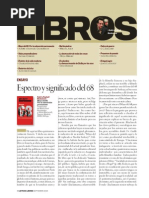Cosmos Witold Gombrowicz Pdf File

February 15, 1970, Page 261 The New York Times Archives Witold Gombrowicz (1904–1969), the Polish novelist and playwright, was that melancholy phenomenon in literature, the minor writer on to major vision. Gombrowicz conceived of an “interhuman sphere,” which he also called “Form,” that repre sented the collective shape he saw mankind assuming.
Witold Gombrowicz's last novel, Cosmos, is a compulsively unsettling philosophi- cal drama veiled as a quotidian mystery. Originally published in Polish in 1965. Danuta Borchardt's new English translation conveys a world wrought with an interconnectedness, or perceived interconnectedness, that struggles to understand. In the complex passage about crossing the Atlantic to Europe after his Argentine years, its 'yellowed sheets with a month-by-month chronology' are announced – they're in a valise in his cabin - and then are criticised, with Gombrowicz skeptical of 'this litany of particulars'. Yet it was that file, and his. Michel de Certeau (1925—1986) was a polymath who practised an interdisciplinarity that is often espoused but rarely performed. His wide range of interests and expertise covered religious history, ethnography, psychoanalysis, the history of colonial encounters, and the history of popular culture. His academic homes were.
“Being united,” he wrote, “people impose on one another such or such a mode of be ing, talking, acting. Every person deforms other persons while being simultaneously deformed by them.” By Witold Gombrowicz. Translated by Eric Mosbacher. New York: Grove Press. In Gombrowicz's works, people labor to find their selfhood, but are con stantly foiled by overlapping with or getting dented by others—by some fiendish collective being into which they must merge, like several water colors flowing into one another to form one ugly, off‐color blob. The idea is worthy, even important, but Gombrowicz's attack on it is often less than incisive. There is much self‐indulgent doodling in both the plays and the fiction; much clev erness that fails to amuse and fine writing that fails to arouse.

Thus in “Cosmos” (first published in Poland in 1965) we keep coming across such easy paradoxes as an oxymo ronic hand that is “erotically non erotic” or such characteristic con ceits as “I thought hard and deeply and at the same time my mind was a blank. Thuppakki Bluray Tamil Movie Download. ” More important, Gombrowicz's work, in which masks and false faces assume supreme importance, is in itself two‐faced. For though the characters ostensibly struggle toward self‐definition and an emergency exit from the interhuman sphere, antipodal sentiments keep cropping up: “Born as we are out of chaos, why can we never establish contact with it? No sooner do we look at it than order, pattern, shape is born under our eyes.” “The baffling riddles of the night were being stranded on the dry sand of explanation. It was very sad.”.
Advertisement Another problem with Gombrowicz, though one for which he is hardly responsible, is that he wrote in a language little known and less trans latable. Telugu Taj Mahal Movie Free Download. By which I do not so much mean Polish as Gombrowicz's Polish, in which language itself is system atically ridiculed and all human re lationships, based on language, made absurd. In the novel “Transatlantic,” for example, this is achieved by an all‐too‐perfect imitation of 18th‐cen fury baroque Polish; another device is the maniacal reveling in diminu tives, which defies Englishing. Eric Mosbacher's translation of “Cosmos” is based on the French and German versions of the novel, thus further widening the fidelity gap. “Cosmos” is the nonstory of Witold, a summer‐vacationing student from Warsaw, who finds himself in a hum drum country boarding house into which he is led by an acquaintance, Fuchs, a paranoid clerk. Both young men get entrapped in patterns: first, that of a hanged sparrow outside the Wojtys boarding house and a tiny sliver of wood hanging by a minute bit of string from the rear garden wall; then by the slightly disfigured mouth of the maid, Katasia, which keeps imposing and transposing itself on the mouth of the landlady's pretty, just‐married daughter, Lena, with whom Witold falls nebulously, neu rotically in love.



